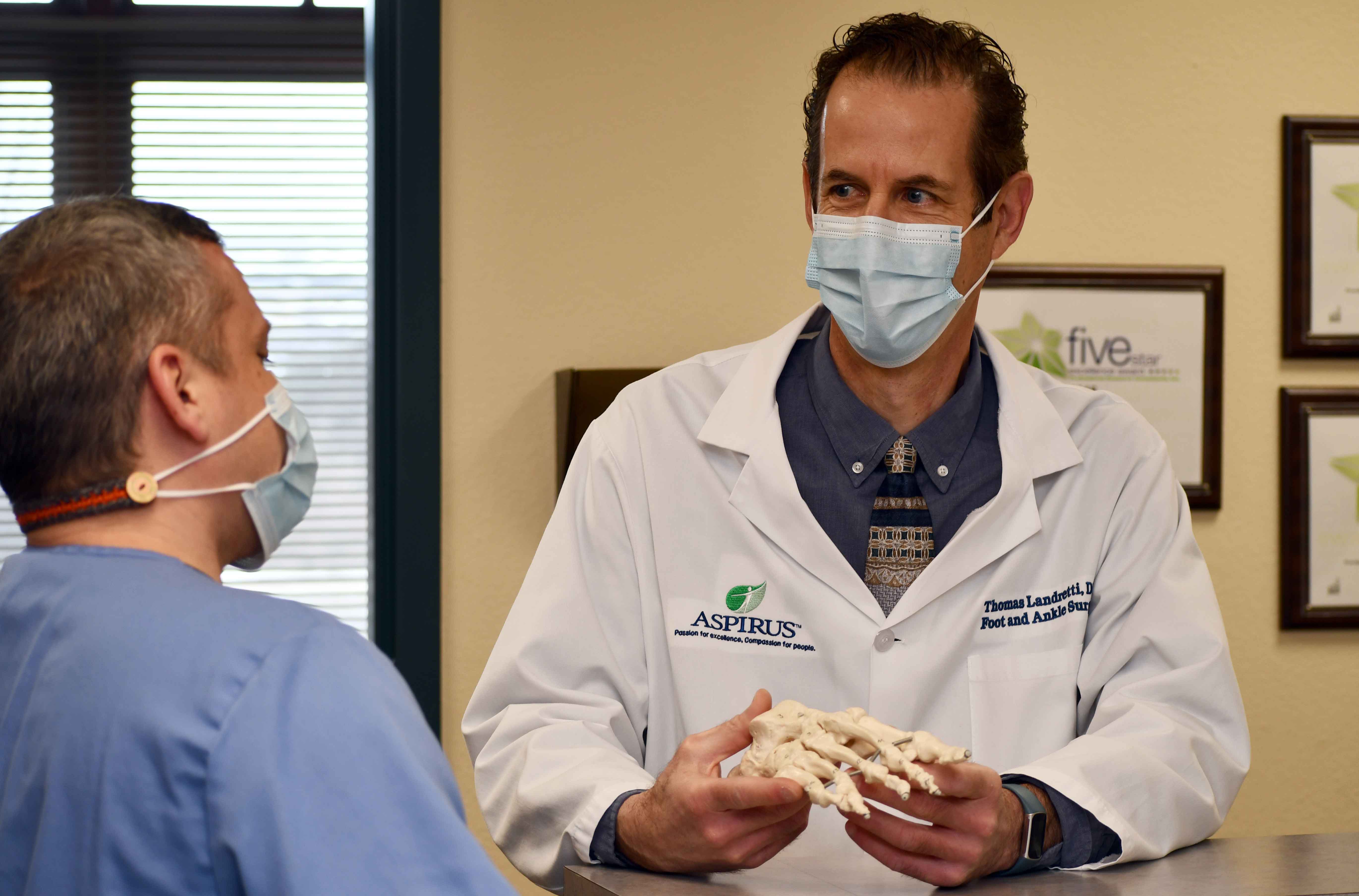The Dangers of Going Barefoot
April is National Foot Health Awareness Month
4/13/2023

Dr. Thomas Landretti, Aspirus Podiatrist
As the weather starts
to heat up, many will begin replacing their winter boots with sandals, flip
flops or no shoes at all. As tempting as it may be to feel the earth beneath
your feet, doing so can expose them to harmful risks.
“Although it may be a
very common summertime habit, going barefoot can leave your feet exposed and
vulnerable. Walking barefoot on hot surfaces such as blacktop or cement can
burn the bottoms of your feet in addition to the possibility of stepping on rocks,
glass or other sharp objects that could penetrate the skin and cause an
infection,” says Thomas Landretti, DPM, Aspirus Podiatrist.
Apart from potential
cuts and burns, walking barefoot also exposes feet to bacterial and fungal
organisms that can infect the skin and nails, leading to a change in
appearance, odor, and comfort.
“Public showers can
contain contagious bacteria and fungus that can lead to health issues including
athlete’s foot and ringworm,” says Dr. Landretti. “Wearing shower shoes in high
traffic areas is the best way to prevent the spread.”
Here are some tips
from the American Podiatric Medical Association to keep your feet healthy all
summer long.
- Limit walking barefoot
as it exposes feet to sunburn, as well as plantar warts, athlete's foot,
ringworm, and other infections and increases risk of injury to your feet.
- Wear shoes or flip
flops around the pool, to the beach, in the locker room and even on the
carpeting or in the bathroom of your hotel room to prevent injuries and limit
the likelihood of contracting any bacterial infections.
- Remember to apply
sunscreen all over your feet, especially the tops and fronts of ankles, and
don't forget to reapply after you've been in the water.
- Stay hydrated by
drinking plenty of water throughout the day. Drinking water will not only help
with overall health but will also minimize any foot swelling caused by the
heat.
- Keep blood flowing
with periodic ankle flexes, toe wiggles, and calf stretches.
- Some activities at the
beach, lake, or river may require different types of footwear to be worn. To be
safe, always pack an extra pair of sneakers or protective water shoes. If your
shoes will be getting wet, they should be dried out completely before your next
wearing to prevent bacteria or fungus from growing.
- Avoid wearing flip
flops for extended periods of time. Most don’t provide the required support or
the necessary fit to stay securely on your feet and may cause blisters and pain
on the arches or the balls of your feet. Additionally, you may be more likely
to slip or fall due to the lack of stability.
Many diseases and foot
problems can be prevented through healthy personal hygiene and foot care.
Healthy foot hygiene practices include not only washing your feet but also
clipping your toenail, changing socks at least once a day, wearing
well-fitting, protective footwear.
“Fungus loves dark,
warm and wet environments,” says Dr. Landretti. “People should make sure to
keep their feet dry, sanitize flip flops and sandals often and treat any cut or
scrape they may get on their feet as soon as possible.”
People should check
their feet regularly for cuts, sores, swelling, dryness, and infected toenails
and apply treatment as needed.
If an injury to the
foot occurs, seek professional medical attention from a podiatric physician. If
foot injuries are left untreated, they can result in worsening pain or
infection. Use the Aspirus Find
a Provider tool to get treatment wherever your travels take you this
summer.
Back to all Posts